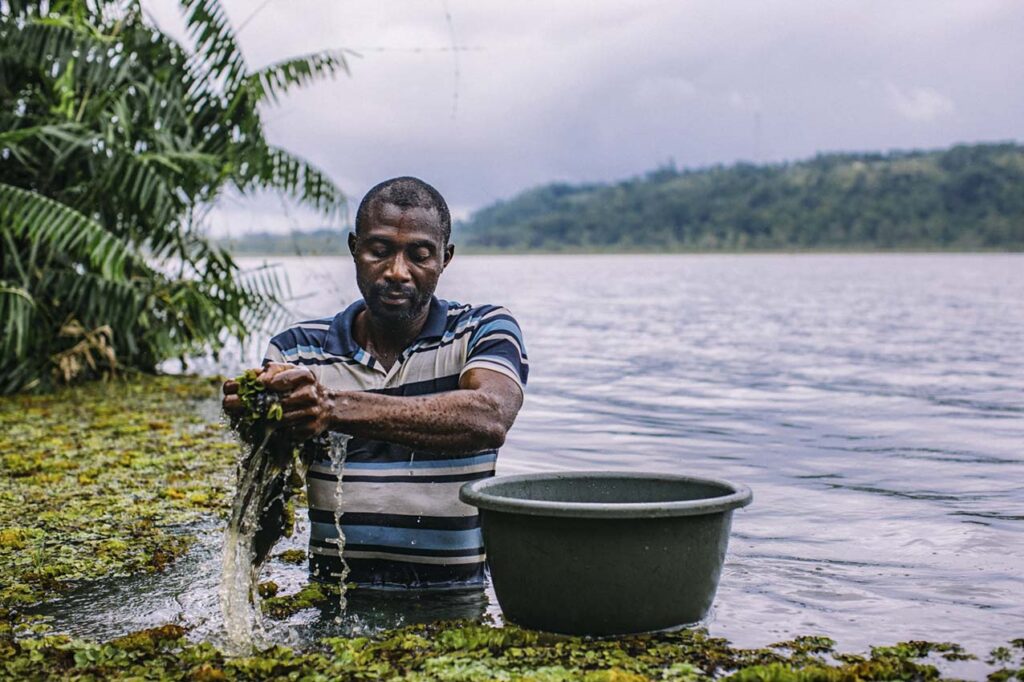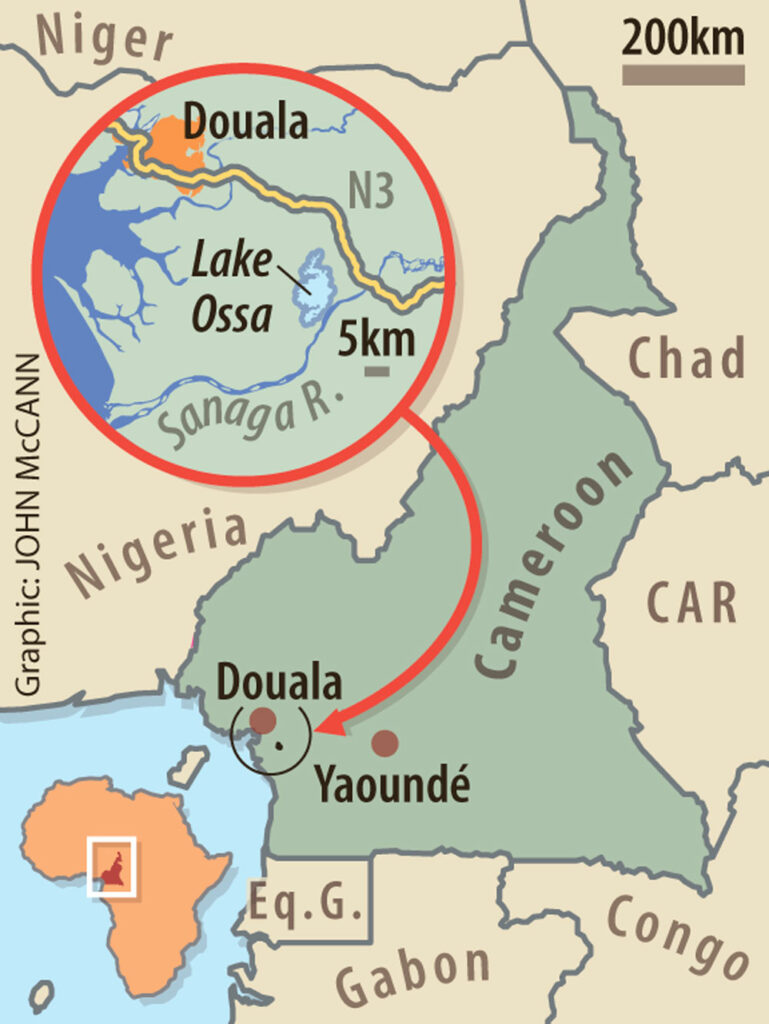Frond or foe: The salvinia fern covers more than 40% of the lake’s surface. (Photo: African Marine Mammal Conservation Organisation)
Jonathan Ndjana, a lean man in his early forties, is among a group of fishermen and women who have gathered on the banks of Lake Ossa to clear the lake’s entry point of weeds. “This plant you see has covered the area,” he tells The Continent, stretching his hand to point out to the broad swathe of salvinia fern on the lake. “It’s not easy to fish here, anymore.”
Ndjana is one of around 400 people who fish on Cameroon’s Lake Ossa: a wildlife reserve area which is home to a wide range of aquatic life – not just fish, but West African manatees, dwarf crocodiles and soft shell turtles. The lake has come under threat, however, from a giant, floating fern that originates in Brazil and Argentina. Bounded by the country’s longest river, the Sanaga, the 4,000 hectare lake has experienced a significant growth of the invasive salvinia fern, which now covers 40% of the lake’s surface.
“We do this exercise to at least clear this point of embarking, so that we can get access to the areas that are not affected,” Ndjana explains.
But the effort is almost futile: “We weed out tonnes of the salvinia plant regularly, but within days it will be as if we did not do any work here.”
Ndjana, who has fished on the lake for 22 years, admits the salvinia invasion is an even bigger issue than the rising water levels they now face regularly – or even the Covid-19 pandemic which the country, like the rest of the world, is struggling with.
It is a problem shared by all the fishers in the Dizangué community, which comprises about 2 000 people. Fishing and subsistence farming are their main economic activities.
Martin Betote, 52, has fished here for nearly two decades. He says the salvinia has also attacked his earnings. “I earn much less now. A fisherman used to get about 100,000 francs [$200] – now even to send our children to school is difficult,” Betote tells The Continent.
He has turned to farming snails, and has joined a community group through which he and his neighbours collect savings and put together loans. “At the moment, we are preparing 500,000 francs [$900] to help two members,” he says.
 Clearing weeds as part of a campaign into recycling fishing nets in Lake Ossa
Clearing weeds as part of a campaign into recycling fishing nets in Lake Ossa
Biological control
One solution to the salvinia invasion may lie in nature, though a nature just as alien as the salvinia itself.
Aristide Takoukam Kamla is a marine biologist who has been working in the reserve area since 2014. Through his African Marine Mammal Conservation Organisation, the 36-year-old scientist is rearing about 5,000 Cyrtobagous salviniae weevils – a non-indigenous species – to introduce them into the lake as a biological weapon against the plant.
“These weevils are very powerful in fighting against the salvinia plant, which is very terrible to this environment,” he tells The Continent.
“It will destroy the plant at two stages: the larvae will feed on the buds [of salvinia] where new leaves of the plant grow and where nitrogen, the food of the plant, is concentrated; while the adults will feed on the leaves, causing the whole plant to collapse,” Kamla explains.
South Africa, Senegal and Mauritania have all notably employed the use of weevils for similar purposes over the past few decades.
Kamla’s weevils were supplied by the University of Louisiana where, he says, researchers have done comprehensive studies and determined that the bugs will not compound the threat further: this biological control method is safe for the lake, he says.
“The weevils only feed on the salvinia; when there is none left, they die.”
Kamla still needs the go-ahead from Cameroon’s government before introducing the weevils into the lake, however.
Until then, Ndjana will continue joining other fishermen in the back-breaking exercise of weeding out the stubborn fern. “We can deal with high-water levels caused by the River Sanaga but the salvinia invasion doesn’t help our fishing at all,” he laments.
